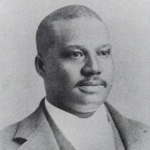American society seems to have become a lot less civil over the years. I know bullies and those who overreact to perceived slights have always existed, but it seems as though people now think it is their patriotic duty to accuse others of committing a moral wrong every time they hear something that offends them. These days conversations and social media aren’t used to establish mutual understanding as much as to tell other people why they are wrong.
In some ways I can understand why this is happening now. Between the pandemic, economic collapse, social unrest, and the loss of routine and certainty, we should expect that people will be on edge. Emotions are running high, and people will react more strongly than usual to things that upset them. But on the other hand, panic never made anything better. (You can put that on a t-shirt if you think it will help anyone around you.) The middle of a crisis is when we most need calm, level-headed words and actions. Assuming the worst about others when things are already at their worst just adds to the problems.

Minnesota history provides us with a wonderful example of dealing with crisis. On September 1, 1894, an inferno raced across Minnesota from south of Hinkley almost to Duluth. Depending on which account you believe, the fire destroyed over 200,000 acres in anywhere from six days to less than a day. (To put that in perspective, the Carr Fire that devastated northern California a few years ago took over a month to destroy a similar swath of land.) Because the Hinckley Fire moved so fast, the only ways to escape it were to find a body of water to hide in or to board a train. John Wesley Blair was the porter on a train that left Hinkley just ahead of the fire. While many of the people on the train were in hysterics, he moved calmly among the passengers, providing water and reassuring them. Eventually the train reached one of the rivers north of Hinckley, and because every car on the train was burning by that point (the carriages were, of course, made of wood), the engineer stopped the train and had the passengers head for the water. Blair patiently helped passengers off the train and then splashed water over the children in the river as the fire raged around them. Once the fire had passed and the temperatures began to drop in the evening, he gathered the survivors into groups to stay warm until rescue arrived. When Blair was asked later how he had stayed calm in the middle of the firestorm, he reportedly replied, “I just resolved I would not lose my head, and if I had to die, I would do it without making a fool of myself.”
Today, we need more people who can follow John Wesley Blair’s example. Yes, things are worse than at any time most of us can remember, but that doesn’t mean we have to scream every time someone uses a phrase we don’t like or questions their political values. So, as much as it is an overused phrase, I will say to all of us, “Keep calm”.
by Marti Maltby, Director Peace House Community – A Place to Belong
This article originally appeared in “The Alley,” the newspaper for the Phillips neighborhood of Minneapolis.
